
Monte Café: A Coffee Lover's Paradise in Sao Tome and Principe
Monte Café is a serene plantation village located in the lush heart of Sao Tome and Principe. This enchanting destination offers visitors a unique glimpse into the island's rich coffee culture and history. Nestled amidst verdant hills, Monte Café is surrounded by picturesque landscapes that make it a perfect retreat for nature lovers and coffee enthusiasts alike. The main attraction in Monte Café is the historic coffee plantation, where you can take guided tours to learn about the traditional methods of coffee cultivation and processing. The plantation boasts beautiful colonial-era buildings and offers a fascinating peek into the past. Visitors can also enjoy coffee tastings, savoring the robust and aromatic flavors of locally grown beans. In addition to its coffee heritage, Monte Café is a gateway to several natural wonders. The nearby Obo National Park, with its dense rainforests and diverse wildlife, provides excellent opportunities for hiking and bird-watching. The village itself is charming, with friendly locals and a relaxed atmosphere that invites you to unwind and soak in the beauty of Sao Tome and Principe.
Local tips in Monte Café
- Hire a local guide for the coffee plantation tour to gain deeper insights into the history and processes.
- Visit the plantation early in the morning to enjoy cooler temperatures and fewer crowds.
- Don't miss the chance to taste freshly brewed coffee at the plantation's café.
- Wear comfortable walking shoes as the terrain can be uneven.
- Combine your visit with a trip to Obo National Park for a full day of exploration.
Monte Café: A Coffee Lover's Paradise in Sao Tome and Principe
Monte Café is a serene plantation village located in the lush heart of Sao Tome and Principe. This enchanting destination offers visitors a unique glimpse into the island's rich coffee culture and history. Nestled amidst verdant hills, Monte Café is surrounded by picturesque landscapes that make it a perfect retreat for nature lovers and coffee enthusiasts alike. The main attraction in Monte Café is the historic coffee plantation, where you can take guided tours to learn about the traditional methods of coffee cultivation and processing. The plantation boasts beautiful colonial-era buildings and offers a fascinating peek into the past. Visitors can also enjoy coffee tastings, savoring the robust and aromatic flavors of locally grown beans. In addition to its coffee heritage, Monte Café is a gateway to several natural wonders. The nearby Obo National Park, with its dense rainforests and diverse wildlife, provides excellent opportunities for hiking and bird-watching. The village itself is charming, with friendly locals and a relaxed atmosphere that invites you to unwind and soak in the beauty of Sao Tome and Principe.
When is the best time to go to Monte Café?
Iconic landmarks you can’t miss
Saint Nicholas Waterfall
Explore the serene beauty of Saint Nicholas Waterfall in Monte Café, a hidden gem in São Tomé, surrounded by lush landscapes and vibrant wildlife.
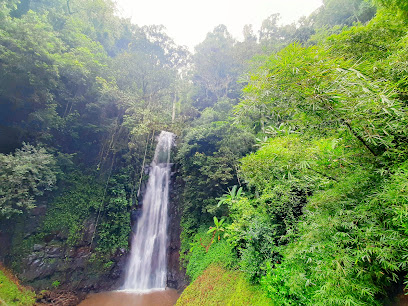
Sao Tome Island
Explore the lush landscapes and vibrant culture of São Tomé Island, a hidden paradise in the Gulf of Guinea.
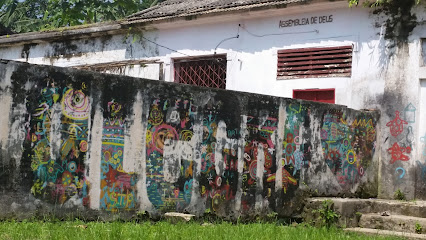
Museu Do Cafe
Explore the fascinating journey of coffee at Museu Do Cafe, a must-visit destination in Monte Café showcasing the island's rich coffee heritage.
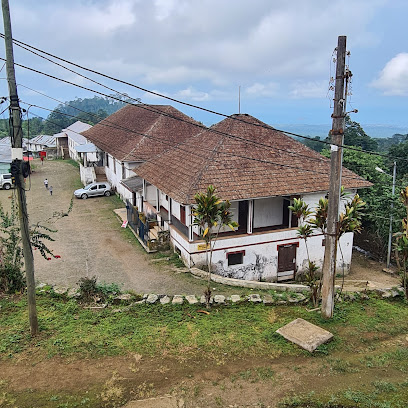
Claudio Corallo - Cacao & Caffe São Tomé e Príncipe
Discover the artistry of chocolate at Claudio Corallo in São Tomé, where exquisite flavors and rich heritage come together in every bite.
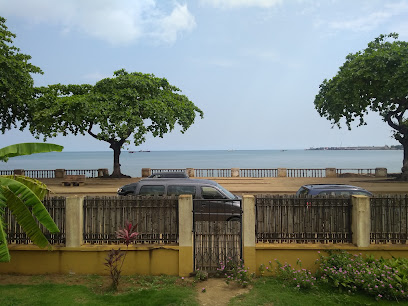
São Sebastião Museum
Explore the fascinating history and culture of São Tomé at São Sebastião Museum, a national treasure situated in a historic fortress.
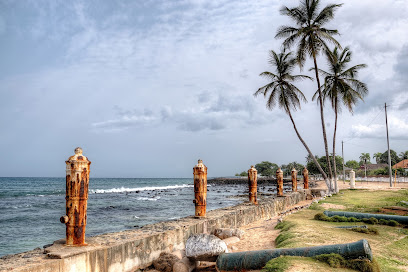
Roça Água-Izé
Explore Roça Água-Izé, a captivating open-air museum in São Tomé, where history and nature unite in a stunning tropical setting.
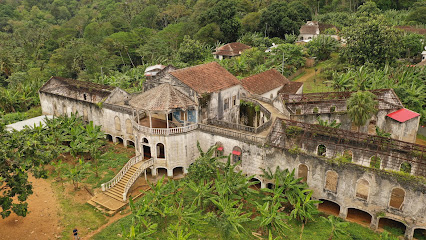
Forte de São Sebastião
Explore the rich history and stunning architecture of Forte de São Sebastião, a museum that reveals the captivating story of São Tomé.
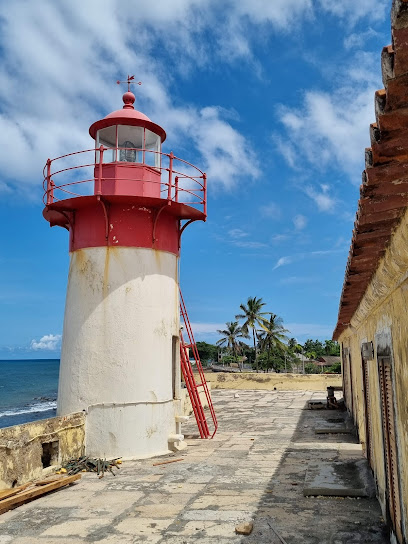
Unmissable attractions to see
Obo National Park
Explore the lush rainforests, diverse wildlife, and breathtaking landscapes of Obo National Park in Monte Carmo for an unforgettable experience.
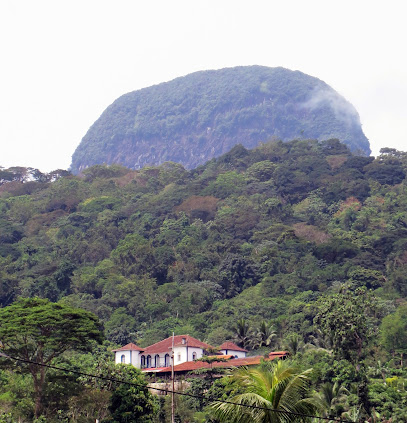
Malanza Mangrove Boat Tour
Explore the lush mangroves of Malanza on a tranquil boat tour, encountering diverse wildlife and stunning landscapes in São Tomé and Príncipe.
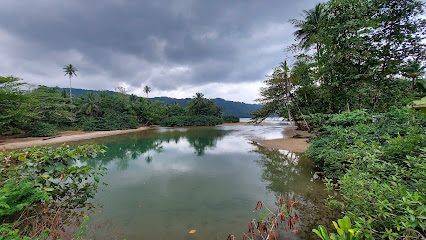
L'Atelier Vanilha (Vanilha Factory)
Explore L'Atelier Vanilha, where agriculture meets adventure in São Tomé. Perfect for families and nature lovers seeking a unique experience.
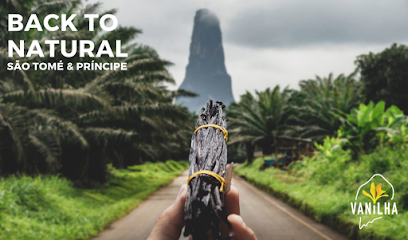
Battery Beach
Experience the serene beauty of Battery Beach in Porto Alegre, a perfect destination for relaxation and outdoor fun along the stunning coastline.

Museu do Mar e da Pesca Artesanal
Immerse yourself in the maritime culture of São Tomé at Museu do Mar e da Pesca Artesanal, where history and tradition come alive.
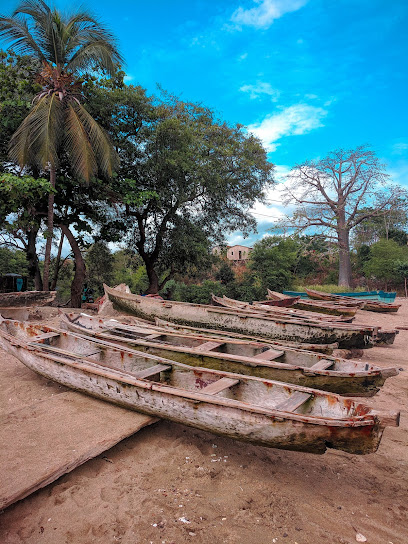
Pico Cão Grande View Point
Discover the stunning vistas and serene beauty at Pico Cão Grande View Point, a must-visit attraction in São Tomé and Príncipe.
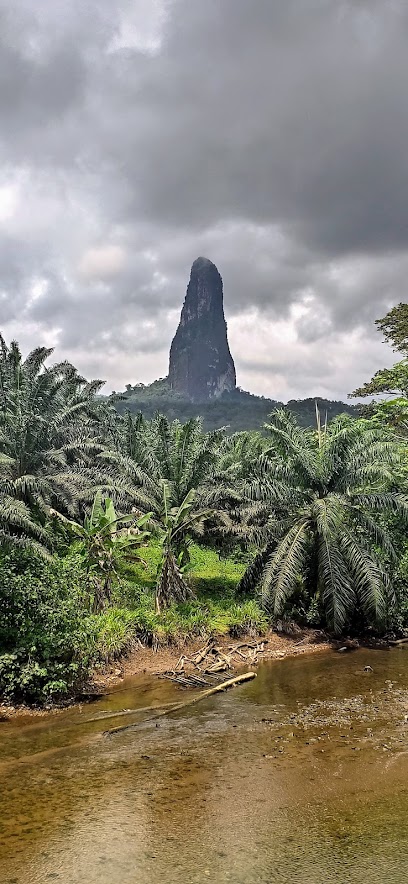
Praia Vanha
Experience the tranquil beauty and cultural richness of Praia Vanha, a serene beach destination in Porto Alegre, perfect for relaxation and exploration.
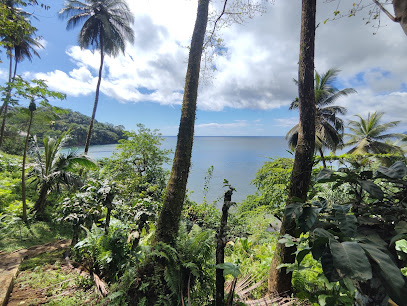
Ruínas do Hospital Agostinho Neto
Explore the haunting beauty of Ruínas do Hospital Agostinho Neto, a historic site in São Tomé and Príncipe rich in culture and architectural heritage.
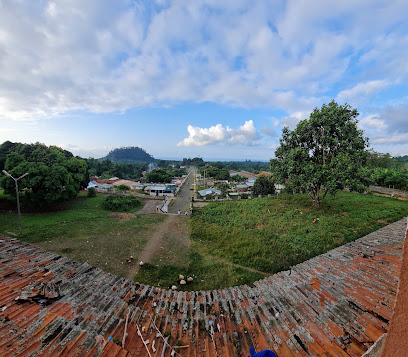
Cascata São Salvador
Discover the serene beauty of Cascata São Salvador, a breathtaking waterfall in Porto Alegre, perfect for relaxation and nature exploration.
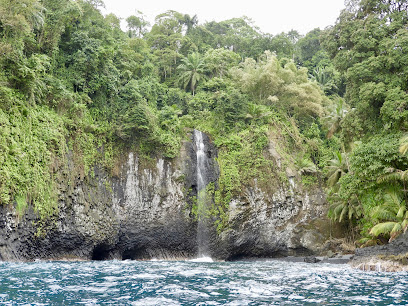
Buraco do Pablo
Explore Buraco do Pablo, a hidden natural wonder in Porto Alegre, known for its stunning landscapes and tranquil atmosphere, perfect for adventure and relaxation.
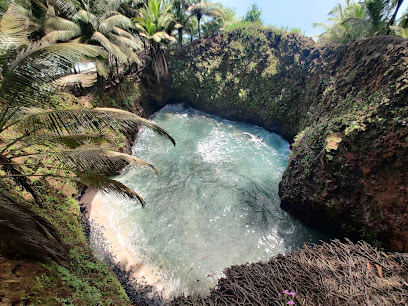
Ponta do Homem da Capa
Explore the captivating beauty and cultural significance of Ponta do Homem da Capa in Porto Alegre, a must-visit tourist attraction.
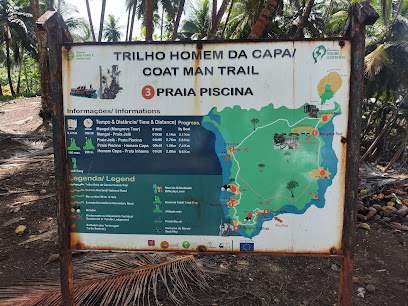
Foto do Pico Cão Grande
Explore Pico Cão Grande, a stunning volcanic spire in São Tomé and Príncipe, renowned for its breathtaking views and rich biodiversity.
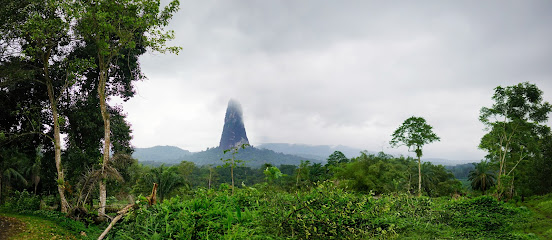
Praia Inhame
Experience the tranquil beauty of Praia Inhame, Porto Alegre's stunning beach destination perfect for relaxation, adventure, and unforgettable memories.
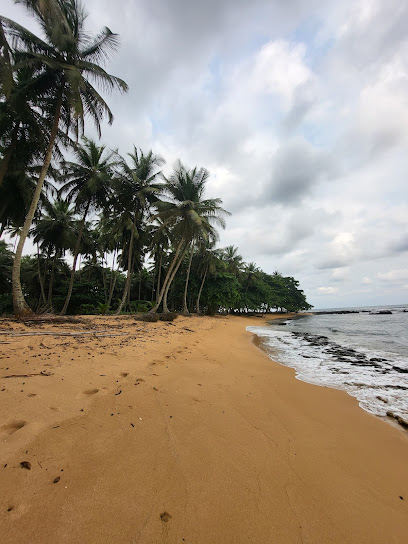
Praia Cabana
Explore the serene beauty of Praia Cabana in Porto Alegre, a perfect escape for relaxation and outdoor adventures amidst nature's splendor.
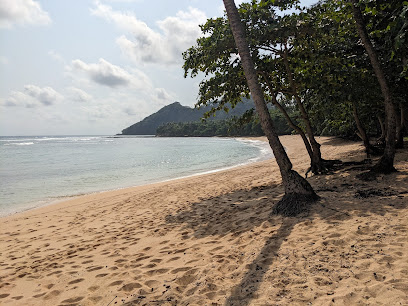
Gueiser Hydra
Explore Gueiser Hydra, Porto Alegre's gem known for its stunning geothermal features and breathtaking landscapes that captivate every traveler.

Essential places to dine
Pestana São Tomé
Discover luxury and culture at Pestana São Tomé - your ultimate tropical getaway in Sao Tome and Principe.

Papa-Figo
Experience authentic flavors of São Tomé at Papa-Figo - where local cuisine meets welcoming ambiance.
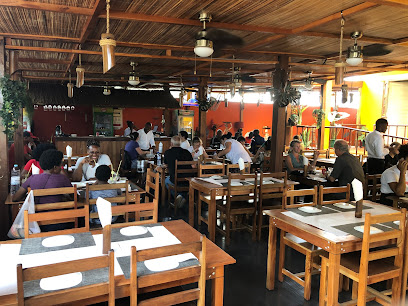
Casa Museu Almada Negreiros
Explore Casa Museu Almada Negreiros: A Cultural Haven Celebrating Portuguese Modernism in Scenic Sao Tome.
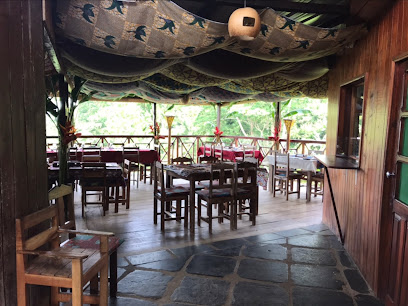
Dona Teté
Experience authentic Creole cuisine at Dona Teté in São Tomé – where vibrant flavors meet cultural heritage.
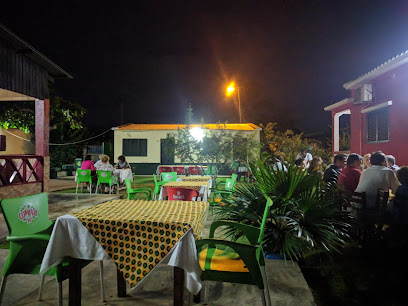
Miónga
Experience authentic São Tomé cuisine at Miónga in São João dos Angolares—a must-visit for food lovers seeking rich flavors and local charm.
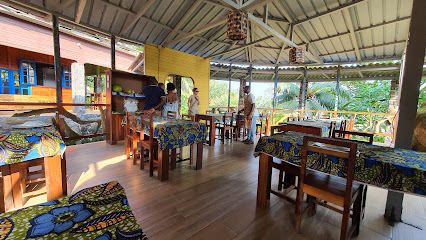
Monte Mar Restaurante São Tomé
Experience authentic São Toméan cuisine with breathtaking ocean views at Monte Mar Restaurante – a culinary delight for all visitors.
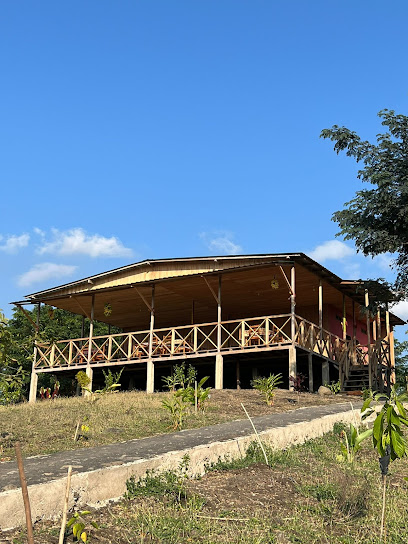
Xico's Café
Experience the essence of São Tomé at Xico's Café – where local flavors meet international cuisine in a cozy setting.
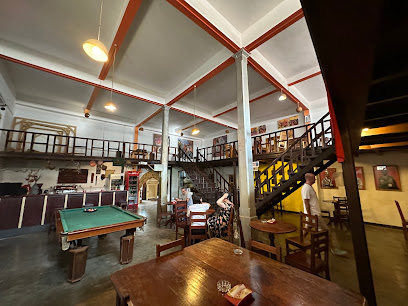
Filomar
Explore Filomar in São Tomé for an authentic Creole dining experience filled with rich flavors and cultural heritage.
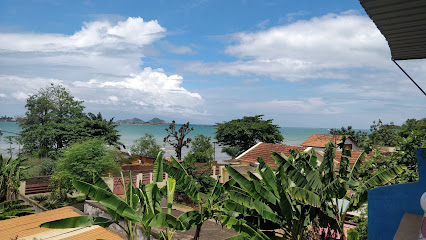
CARAMBOLA
Discover Carambola in São Tomé - where local flavors meet international flair for an unforgettable dining experience.
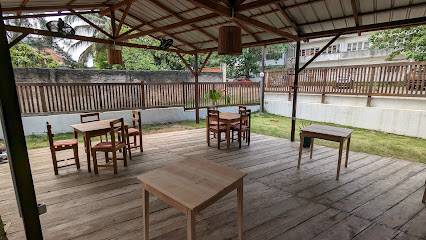
Firma Efraim
Experience the best coffee and local cuisine at Firma Efraim in Monte Café, where every sip and bite reflects São Tomé's vibrant culture.
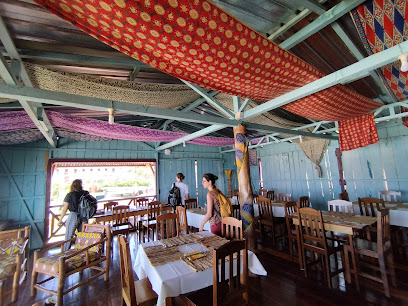
COCONUT'S BAR
Experience beachfront dining at Coconut's Bar in Ribeira Afonso, where delicious local cuisine meets stunning ocean views for an unforgettable tropical getaway.
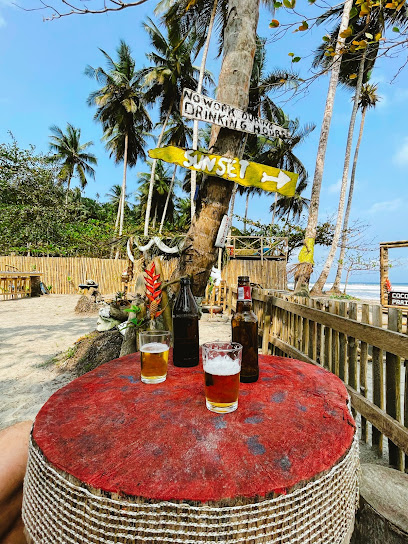
Zima restaurante Bar
Discover the flavors of São Tomé at Zima Restaurante Bar - where local cuisine meets tropical charm.
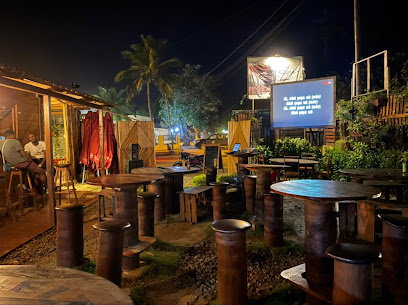
Xquizeat
Discover authentic flavors at Xquizeat in São Tomé—where local ingredients meet culinary creativity for an unforgettable dining experience.
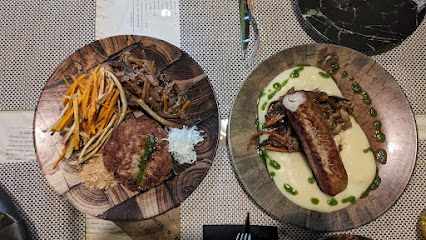
Onda Azul
Discover Onda Azul in São Tomé - where vibrant local flavors meet an unforgettable dining experience amidst lively ambiance.
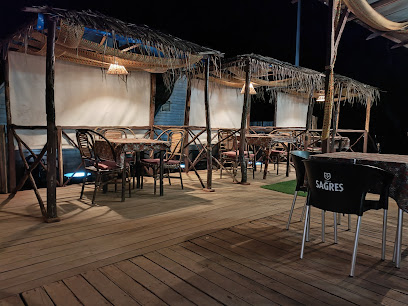
Passante
Experience authentic São Toméan cuisine at Passante, where fresh ingredients meet traditional recipes in a vibrant setting.
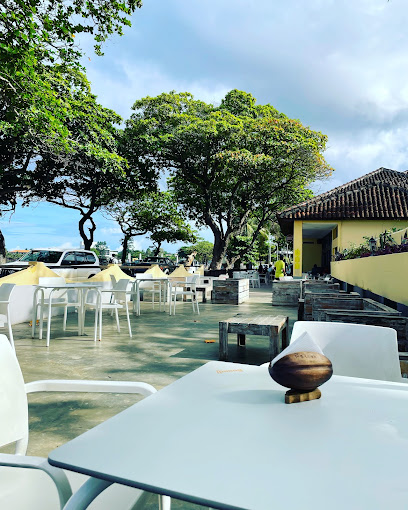
Markets, malls and hidden boutiques
Kuá Tela
Explore the vibrant local crafts and unique souvenirs at Kuá Tela, a charming store in São Tomé that celebrates island artistry.
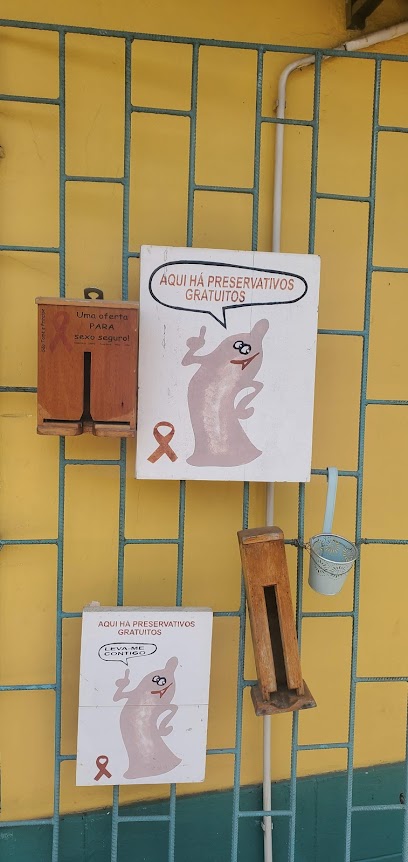
Padaria Central
Experience the authentic tastes of São Tomé at Padaria Central, a bakery renowned for its traditional pastries and local snacks that delight every palate.
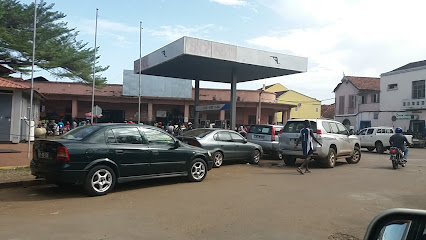
IMPANTA
Explore IMPANTA in São Tomé for unique home goods that blend local culture with modern design, perfect for souvenirs or enhancing your living space.
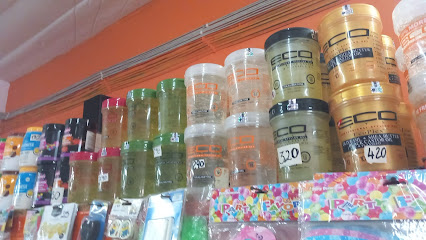
Great World Yeng Cheng
Explore the vibrant flavors of China at Great World Yeng Cheng, a must-visit Chinese supermarket in São Tomé offering authentic products and unique culinary delights.
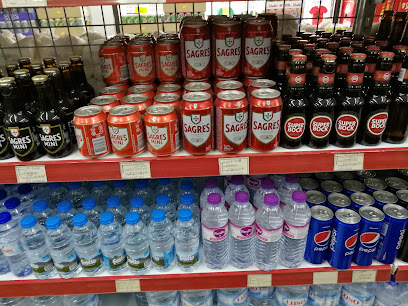
+doce lda
Explore +doce lda in São Tomé for an authentic organic food shopping experience, featuring fresh local produce and unique culinary treasures.
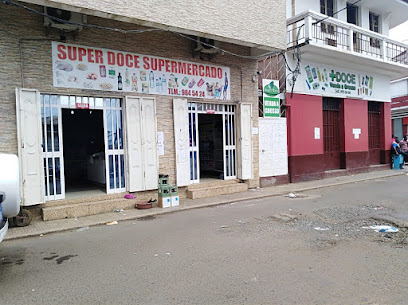
AUTENTIKA
Explore the heart of São Tomé at AUTENTIKA, where authentic local treasures and cultural richness await every visitor.
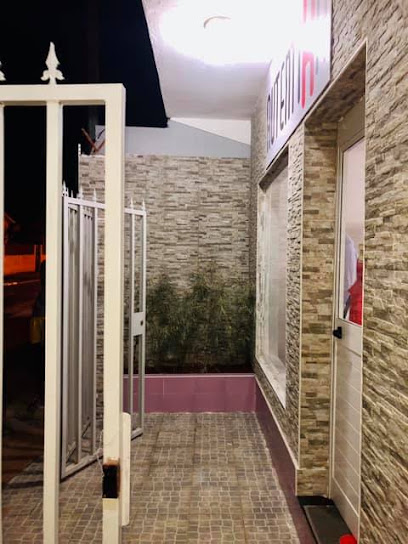
STPSouvenirs
Discover the essence of local culture at STPSouvenirs, where unique artifacts await to be cherished as memories of your journey.
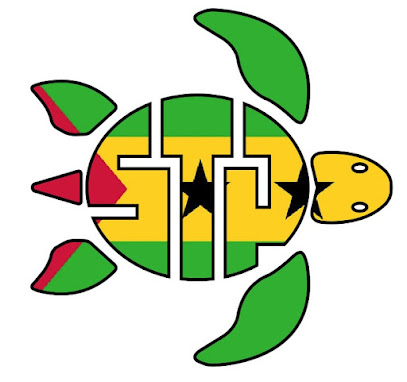
Jorge Vacas
Explore the vibrant fashion scene at Jorge Vacas, a must-visit clothing store in São Tomé offering local and contemporary styles.
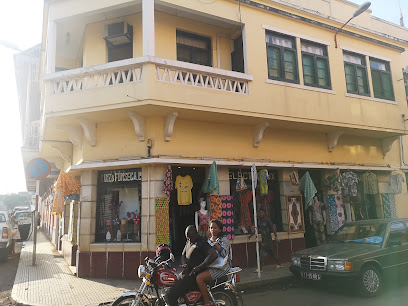
Mama África
Explore Mama África in São Tomé for an authentic shopping experience filled with unique African goods and cultural treasures.
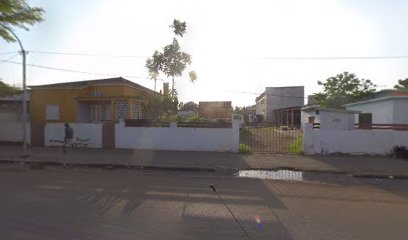
Boutique Otília
Explore Boutique Otília in Neves for unique local crafts, souvenirs, and artisanal products that embody the spirit of the region.
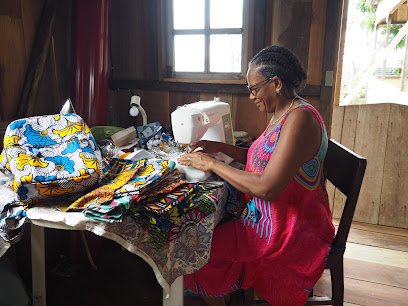
IMPANTAXI
Explore IMPANTAXI in São Tomé for unique home goods that blend local craftsmanship and vibrant cultural heritage.
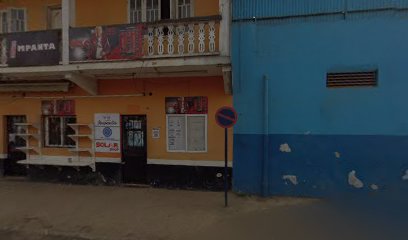
Ayala Moda
Discover unique fashion at Ayala Moda, São Tomé’s premier clothing store blending local charm with contemporary style.
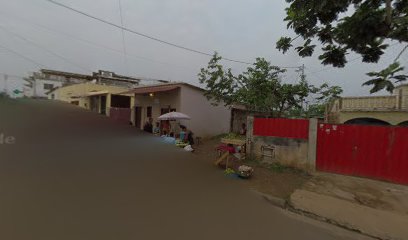
Ayala moda & casa
Experience the vibrant fashion and unique styles at Ayala Moda & Casa, a premier clothing destination in São Tomé.
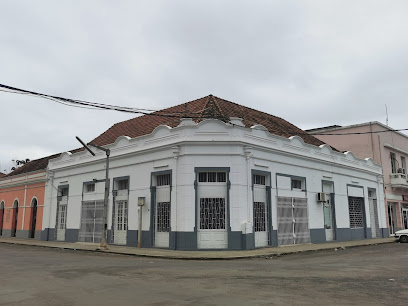
Dona Berta
Discover unique fashion and local craftsmanship at Dona Berta, a vibrant clothing store in São Tomé that showcases the island's rich culture.
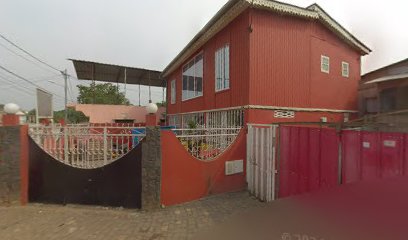
Comercial Vanda & Iris, Lda
Discover the heart of São Tomé at Comercial Vanda & Iris, Lda, your go-to convenience store for local essentials and unique souvenirs.
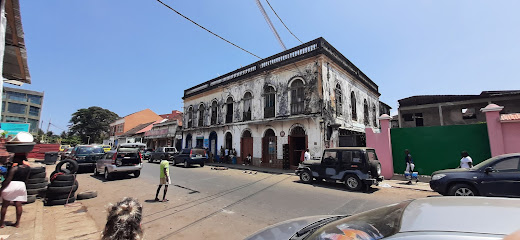
Essential bars & hidden hideouts
Pico Mocambo
Discover the lively Pico Mocambo bar in São Tomé, where local flavors and vibrant nightlife await every traveler.
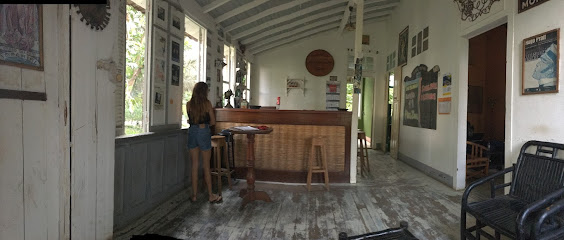
90 Graus Esplanada Bar
Discover the vibrant flavors of São Tomé at 90 Graus Esplanada Bar, where every pizza is a slice of happiness in a lively atmosphere.
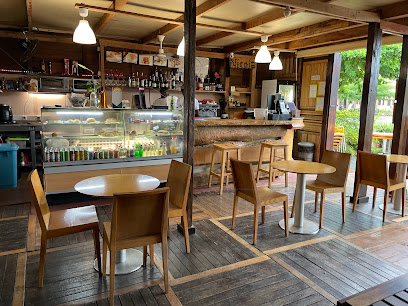
Zima restaurante Bar
Discover the vibrant flavors and lively atmosphere at Zima Restaurante Bar, the perfect dining destination in São Tomé for food and cocktail enthusiasts.
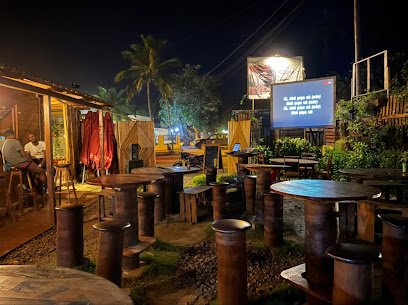
BBC/Abaya da Bôo
Unwind in the heart of São Tomé at BBC/Abaya da Bôo, where local charm meets vibrant nightlife in a perfect blend of relaxation and fun.
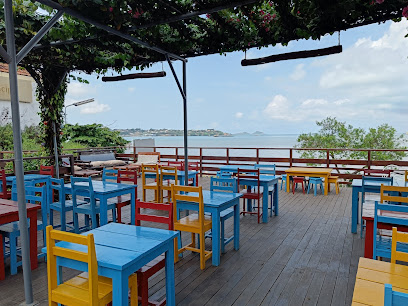
Cafe Park
Discover the vibrant atmosphere of Cafe Park, a lively bar in São Tomé, perfect for socializing, gaming, and enjoying local flavors.
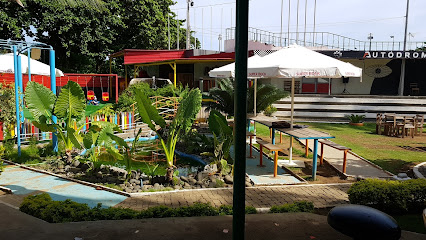
Fundador
Discover the vibrant atmosphere of Fundador Bar in São Tomé, where local flavors and friendly vibes create an unforgettable experience.
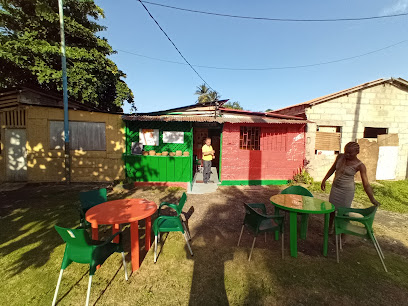
Caipirinha Tropical
Discover the tropical paradise of Caipirinha Tropical, where the finest cocktails and a vibrant atmosphere await in São Tomé.
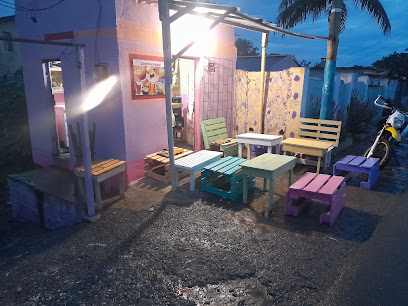
Bar cantinho dos silva Água Boia
Discover the vibrant local nightlife at Bar Cantinho dos Silva in Água Boia, where culture meets conviviality in São Tomé.
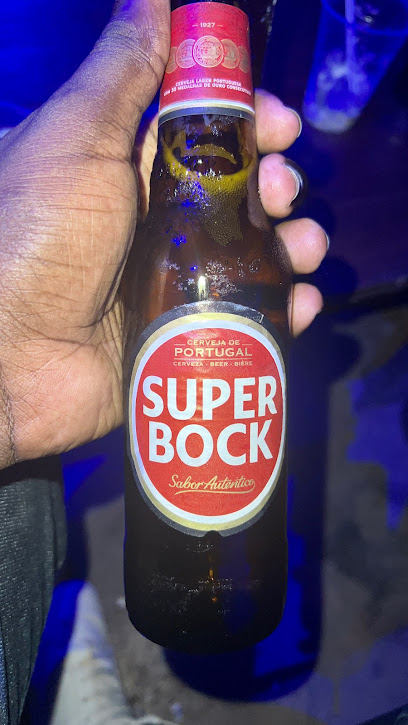
Kay Shisha
Discover the vibrant nightlife of São Tomé at Kay Shisha, a bar famous for its rich shisha flavors and lively atmosphere.
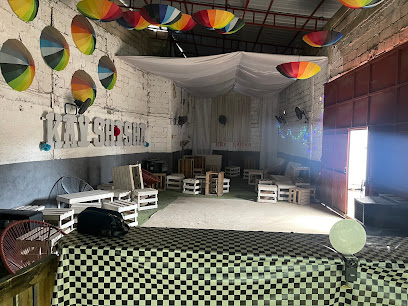
A Sombra da Coleira
Experience the vibrant atmosphere and local flavors at A Sombra da Coleira, a must-visit bar in the heart of São Tomé.
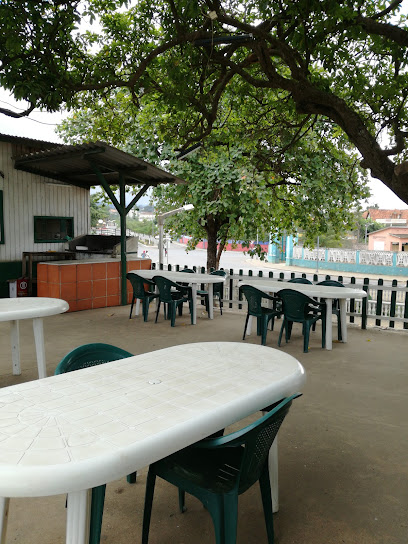
Tia Lussua
Discover the flavors of Monte Café at Tia Lussua, where exceptional local cuisine meets a warm and inviting atmosphere.
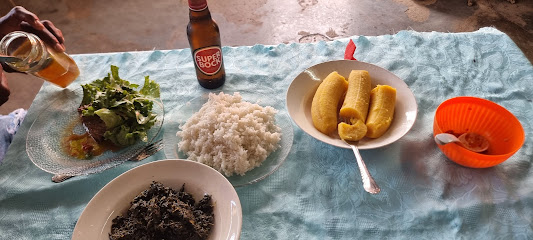
Confidencial gin lover's
Discover the vibrant atmosphere of Confidencial Gin Lover's in São Tomé, where gin enthusiasts find a paradise of flavors and unforgettable experiences.
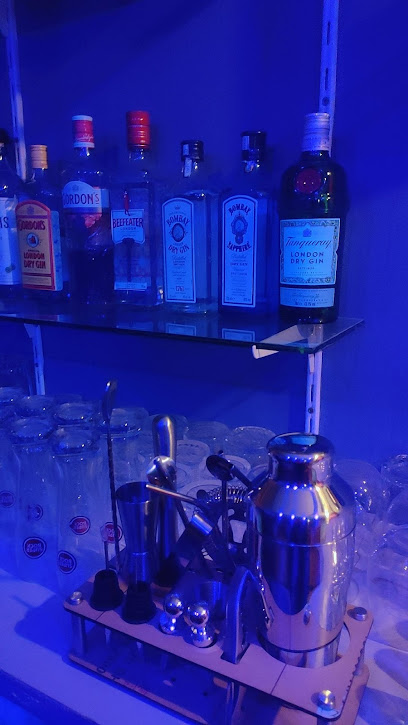
Bar Xinha
Discover Bar Xinha in Neves, where local flavors meet a cozy atmosphere for an unforgettable drinking experience.
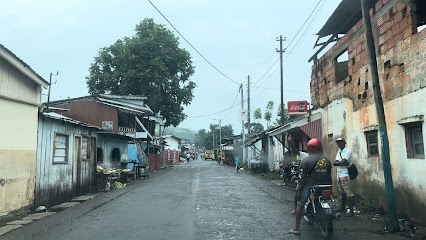
Bala-Bala bar @Praia Lagarto
Experience the vibrant atmosphere and delicious grilled dishes at Bala-Bala Bar, the heart of Praia Lagarto's culinary scene.
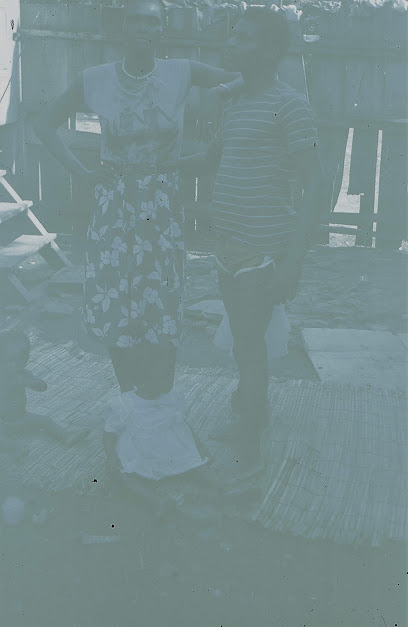
Local Phrases about Monte Café
-
- HelloMolá
[moh-lah] - GoodbyeAdeus
[ah-deh-oos] - YesSim
[seem] - NoNão
[nah-oo] - Please/You're welcomePor favor/De nada
[pohr fah-vohr/deh nah-dah] - Thank youObrigado
[oh-bree-gah-doo] - Excuse me/SorryCom licença/Desculpe
[kohm lee-sehn-sah/deh-skool-peh] - How are you?Como está?
[koh-moh ehs-tah] - Fine. And you?Bem. E você?
[behn/eh voh-seh] - Do you speak English?Fala inglês?
[fah-lah een-glehz] - I don't understandNão entendo
[nah-oo ehn-tehn-doo]
- HelloMolá
-
- I'd like to see the menu, pleaseGostaria de ver o menu, por favor
[goh-stah-ree-ah deh vehr ooh meh-noo/por fah-vohr] - I don't eat meatNão como carne
[nah-oo koh-moo kahr-neh] - Cheers!Saúde!
[sah-oo-deh] - I would like to pay, pleaseQuero pagar, por favor
[keh-roh pah-gahr/por fah-vohr]
- I'd like to see the menu, pleaseGostaria de ver o menu, por favor
-
- Help!Ajuda!
[ah-zhoo-dah] - Go away!Vá embora!
[vah ehn-boh-rah] - Call the Police!Chame a polícia!
[shah-meh ah poh-lee-see-ah] - Call a doctor!Chame um médico!
[shah-meh oom meh-dee-koo] - I'm lostEstou perdido
[ehs-toh pehr-dee-doo] - I'm illEstou doente
[ehs-toh doo-ehn-teh]
- Help!Ajuda!
-
- I'd like to buy...Gostaria de comprar...
[goh-stah-ree-ah deh kohm-prahr] - I'm just lookingEstou só a olhar
[ehs-toh soh ah oh-lahr] - How much is it?Quanto custa?
[kwan-toh koos-tah] - That's too expensiveIsso é muito caro
[ee-soh eh moo-ee-toh kah-roo] - Can you lower the price?Pode baixar o preço?
[poh-deh bahy-shahr ooh preh-soo]
- I'd like to buy...Gostaria de comprar...
-
- What time is it?Que horas são?
[keh oh-rahz sah-oo] - It's one o'clockÉ uma hora
[eh oo-mah oh-rah] - Half past (10)Meia (10)
[may-ah (dohs)] - MorningManhã
[mah-nyah] - AfternoonTarde
[tahr-deh] - EveningNoite
[noy-teh] - YesterdayOntem
[ohn-tehm] - TodayHoje
[oh-zhey] - TomorrowAmanhã
[ah-mah-nyah] - 1Um
[oom] - 2Dois
[doh-ees] - 3Três
[trehs] - 4Quatro
[kwah-troo] - 5Cinco
[seen-koh] - 6Seis
[sayz] - 7Sete
[seh-teh] - 8Oito
[oy-toh] - 9Nove
[noh-veh] - 10Dez
[dehz]
- What time is it?Que horas são?
-
- Where's a/the...?Onde está o/a...?
[ohn-deh ehs-tah oh/ah] - What's the address?Qual é o endereço?
[kahl eh oh ehn-deh-reh-soo] - Can you show me (on the map)?Pode mostrar-me (no mapa)?
[poh-deh moh-strahr-meh/noo mah-pah] - When's the next (bus)?Quando é o próximo (autocarro)?
[kwan-doo eh oo proh-ksee-moh/ow-toh-kah-roo] - A ticket (to ....)Um bilhete (para ....)
[oom bee-lyeh-teh/pah-rah]
- Where's a/the...?Onde está o/a...?
History of Monte Café
-
Monte Café, nestled in the heart of the lush island of São Tomé, was established in the mid-19th century as a coffee plantation. The area was chosen for its fertile volcanic soil, cool climate, and abundant rainfall, making it an ideal location for coffee cultivation. The plantation quickly became one of the island's most significant economic enterprises.
-
During the Portuguese colonial period, Monte Café thrived under the management of colonial administrators. The architecture of the plantation buildings reflects Portuguese styles, with large manor houses, processing facilities, and workers' quarters. These structures still stand today, offering a glimpse into the colonial past of São Tomé and Príncipe.
-
By the late 19th and early 20th centuries, Monte Café was at the center of a coffee boom. The plantation exported large quantities of high-quality coffee to Europe, contributing significantly to the local economy. The boom period brought wealth and development to the region, but also highlighted the harsh realities of colonial labor practices.
-
After the peak of the coffee boom, Monte Café experienced a decline in production due to various factors, including soil depletion, competition from other coffee-producing regions, and political instability. By the mid-20th century, the plantation's output had significantly decreased, leading to economic challenges for the local community.
-
With the independence of São Tomé and Príncipe from Portugal in 1975, Monte Café entered a new era. The plantation was nationalized and efforts were made to revitalize coffee production. However, challenges persisted, and transformation was slow. Today, Monte Café is recognized not just for its agricultural significance, but also as a cultural and historical landmark.
-
In recent years, Monte Café has become a popular destination for tourists interested in the history and culture of São Tomé and Príncipe. The plantation offers guided tours, showcasing the coffee production process, the colonial architecture, and the natural beauty of the area. Cultural events and festivals also celebrate the rich heritage of Monte Café, making it a vibrant part of the island's tourism industry.
Monte Café Essentials
-
Monte Café is located in the central highlands of São Tomé Island. To reach São Tomé and Príncipe, you will typically fly into São Tomé International Airport (TMS) from Lisbon, Portugal, or via connecting flights from other African cities. From the airport, you can hire a taxi or rent a car to drive to Monte Café, which is approximately an hour's drive from the capital city, São Tomé.
-
Transportation within Monte Café is limited. Most visitors find it convenient to rent a car to explore the area at their own pace. Local taxis are available but may need to be arranged in advance. For a more immersive experience, consider taking guided tours that include transportation. Walking is also an option for exploring the immediate vicinity.
-
The official currency in São Tomé and Príncipe is the Dobra (STN). While some hotels and restaurants in Monte Café may accept credit cards, it is advisable to carry cash, particularly for smaller establishments and local markets. ATMs are available in São Tomé city, so it is wise to withdraw sufficient cash before heading to Monte Café.
-
Monte Café is generally a safe destination for tourists. However, standard travel precautions should be taken. Avoid walking alone at night in unfamiliar areas and keep your belongings secured, especially in crowded places. While there are no specific high-crime areas targeting tourists in Monte Café, it is always best to stay vigilant and aware of your surroundings.
-
In case of an emergency, dial 112 for immediate assistance. The nearest medical facilities are located in the capital city, São Tomé. It is highly recommended to have travel insurance that covers medical emergencies. For minor health issues, there are pharmacies in São Tomé city where you can purchase over-the-counter medications.
-
Fashion: Do dress comfortably and modestly, especially when visiting religious sites. Avoid overly revealing clothing. Religion: Do respect local customs and traditions. When visiting churches or religious sites, dress modestly and behave respectfully. Public Transport: Do be courteous and respectful if using local taxis or shared transportation. Greetings: Do greet people with a friendly 'bom dia' (good morning) or 'boa tarde' (good afternoon). A handshake is also appropriate. Eating & Drinking: Do try local dishes and accept food offerings graciously. Don't refuse hospitality, as it is considered impolite.
-
To experience Monte Café like a local, visit the local markets where you can buy fresh produce and traditional São Toméan goods. Engage with locals, as they are often friendly and willing to share stories about the area's history and culture. Don't miss visiting the local coffee plantations and learning about the island's coffee heritage. For a unique experience, take a guided tour of the surrounding rainforest to discover the region's rich biodiversity.
Nearby Cities to Monte Café
-
Things To Do in Guadalupe
-
Things To Do in Sao Tome City
-
Things To Do in Neves
-
Things To Do in Ribeira Afonso
-
Things To Do in Angolares
-
Things To Do in Santa Catarina
-
Things To Do in Santo Antonio
-
Things To Do in Libreville
-
Things To Do in Mbini
-
Things To Do in Luba
-
Things To Do in Lambaréné
-
Things To Do in Malabo
-
Things To Do in Kribi
-
Things To Do in Limbe
-
Things To Do in Port Harcourt





